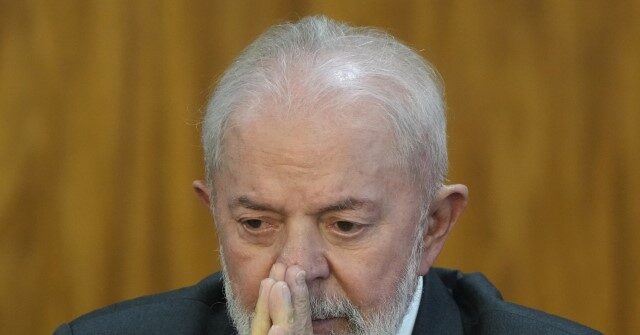A prospective deal on Brazil’s critical and rare earth minerals could be included in ongoing tariff negotiations with the United States, Finance Minister Fernando Haddad said on Monday.
“We have critical minerals and rare earths. The United States is not rich in these minerals. We can enter into cooperation agreements to produce more efficient batteries,” Haddad told the local outlet BandNews.
The Brazilian state-owned news agency Agência Brasil listed lithium and niobium as two of Brazil’s critical minerals, both of which are used for the manufacturing of advanced Lithium-ion batteries for electric vehicles, artificial intelligence processors, and a wide range of devices such as smartphones and laptop computers.
The finance minister also cited the data center sector as an area that could be jointly explored by the two countries, given Brazil’s “abundant energy supply for the operation of data processing and storage centers.”
“The range of sectors in which Brazil is interested in partnering with the United States is enormous. Another important thing is that we don’t want only China, or now the European Union, to invest in Brazil,” Haddad reportedly said during the interview. “We want the United States to invest as well.”
“We are too big a country to serve as a satellite of an economic bloc, whether Asian, European, or American. We need to diversify more and more,” he continued.
President Donald Trump imposed a 50-percent tariff on Brazilian goods that will go into effect this week as per the terms of an executive order signed by Trump declaring Brazil a national security threat to the United States.
At press time, the government of radical leftist President Luiz Inácio Lula da Silva is reportedly preparing to challenge the tariffs at the World Trade Organization (WTO) by claiming that the tariffs lack technical grounds, violate WTO stipulations, and represent a “serious risk to the international trade architecture.”
President Trump said last week that Lula can “call him anytime” to discuss tariffs. Finance Minister Haddad reportedly said that Lula felt the same and would be willing to receive a phone call from Trump. On Sunday, Lula ruled out challenging the United States, but stressed that Brazil is not a “banana republic” and would not desist from decoupling the country from the U.S. dollar.
“I will not give up on the idea that we need to seek to create an alternative currency so that we can trade with other countries. I don’t need to be subordinate to the dollar,” Lula said.
Reports published last week indicated that the United States expressed its interest in Brazil’s rare minerals through Charge d’Affaires, a.i. (interim), Gabriel Escobar, the top diplomat at the U.S. embassy in Brasília.
Escobar reportedly spoke with representatives of the Brazilian Mining Institute, who told the diplomat that such negotiations must be handled by the Brazilian federal government. Days later, Lula appeared to reject the proposal in remarks given during an official government event by stressing that “no one touches anything here.”
“We have all our oil to protect. We have all our gold to protect. We have all the rich minerals you want to protect. And no one here is going to touch them. This country belongs to the Brazilian people,” Lula said.
Haddad told BandNews that the Brazilian government will remain at the negotiating table, asserting that there will be no agreement between the countries if the U.S. government “insists on the terms currently on the table.” According to Haddad, it is possible that certain items will be spared from the U.S. tariff hike. Haddad reiterated that he expects to meet with U.S. Treasury Secretary Scott Bessent this week.
“I believe that something could still happen [new exceptions] before the 6th. It could happen, but I am saying that we are not working with a deadline, we will not leave the negotiating table until we can see an agreement,” Haddad explained, “which requires common interests. In these terms, Brazil will obviously not make an agreement, because it makes no sense whatsoever in terms of the taxation being imposed on the country.”
According to the Brazilian newspaper O Globo, Lula’s aides have “admitted” that the chances for U.S. tariff relief are “very remote” and have instead opted to rush the final details of a government relief package for companies that will be affected by the measure. The Brazilian government is reportedly expected to present the finalized relief package to the public on Wednesday, August 6.
Christian K. Caruzo is a Venezuelan writer and documents life under socialism. You can follow him on Twitter here
Read the full article here


